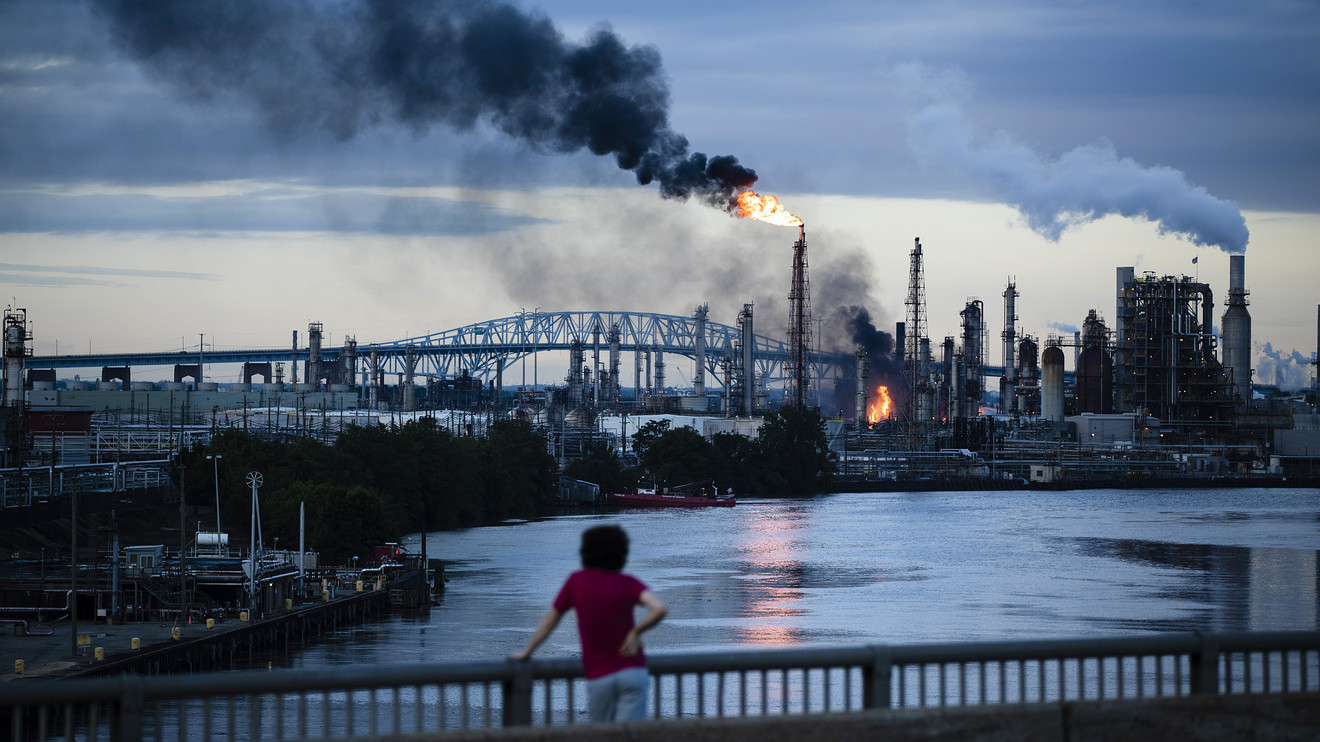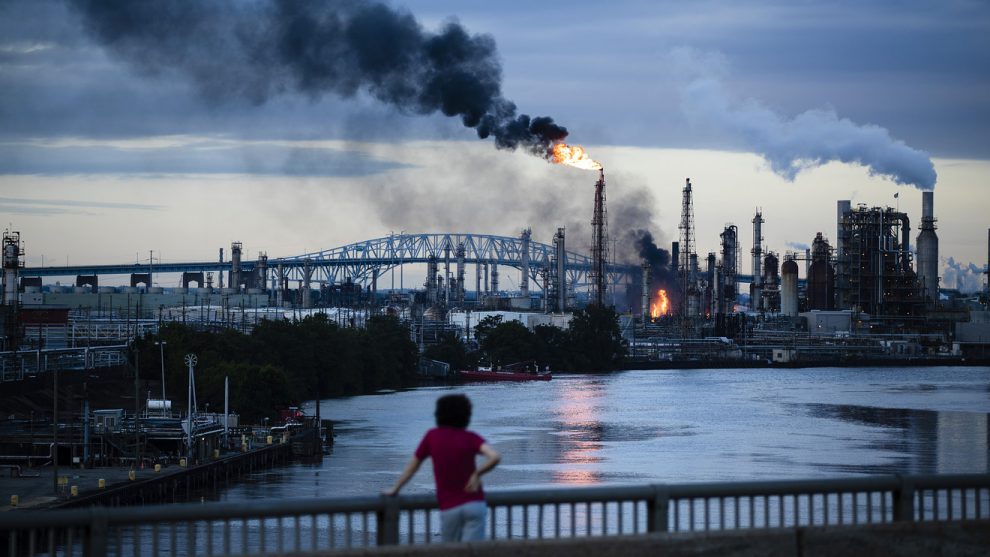
Oil futures were building on their gains for the week Friday, a day after scoring their highest settlement this month, lifted by expectations for economy-boosting central bank policy and continued Middle East tensions that could disrupt oil markets.
Gasoline led the climb among energy futures amid reports that a fire at a 150-year-old refinery complex in Philadelphia startled residents with explosions. Any permanent damage to the facility, the largest on the U.S. Eastern Seaboard, was as yet unclear.
In Friday dealings, the new front-month contract, August West Texas Intermediate crude CLQ19, +0.95% was up 44 cents, or 0.7%, to $57.51 a barrel on the New York Mercantile Exchange. Based on front-month prices, WTI was headed for a roughly 9% gain this week.
On its expiration day, WTI for July delivery US:CLN19 rose $2.89, or 5.4%, to settle at $56.65 a barrel. That was the largest one day dollar and percentage gain for a front-month contract since Dec. 26, 2018 and highest finish since May 29, according to Dow Jones Market Data.
Read: Here’s what’s at stake for oil as the Iran-U.S. tensions escalate
Also on Nymex, July gasoline RBN19, +3.51% shot up by 6.1 cents, or 3.4% to $1.848 a gallon, reacting to the refinery news. Futures prices for the fuel were headed for their highest settlement since late May and was poised for a weekly rise of over 6%. July heating oil HON19, +1.62% rose 2.7 cents, or 1.5%, to $1.912 a gallon, trading over 4% higher for the week.
The fire broke out at the Philadelphia Energy Solutions Refining Complex around 4 a.m. Eastern, spokeswoman Cherice Corley said, according to the Associated Press. Philadelphia Energy Solutions says the oil refining complex is the largest on the U.S. Eastern Seaboard, processing 335,000 barrels of crude oil daily.
This has the potential to have a big impact on gasoline, Patrick DeHaan, head of petroleum analysis at GasBuddy, told MarketWatch, with the refinery accounting for 27% of the region’s refining capacity.
However, the “devil is going to be in the details”—if there was “extensive damage that leads to months of downtime in the middle of driving season,” he said.
Meanwhile, international benchmark August Brent crude BRNQ19, +1.23% climbed 71 cents, or 1.1%, to $65.16 a barrel on ICE Futures Europe. It closed Thursday at $64.45 a barrel—the highest since May 31 and biggest one-day climb since Jan. 9. Front-month Brent was on track for a 5% gain this week.
Thursday’s climb came after Iran shot down a U.S. military drone, adding to fears of a deepening conflict and potential disruption to oil supplies. That news fueled an already price-bullish backdrop, created by expectations the Federal Reserve and other central banks will cut interest rates in coming months to sustain economic growth.
U.S. airstrikes against Iran were called off at the last minute Thursday night, according to the New York Times. The Times reported President Donald Trump had approved attacks against limited Iranian targets and planes were in the air before they were ordered to stand down. ABC News confirmed Trump called off the attack abruptly.
“U.S.-Iran tensions narrowly avoided a major escalation overnight,” said Robbie Fraser, senior commodity analyst at Schneider Electric, in daily comments. “The strike was ultimately called off, but the quick reversal nonetheless highlights how close the two countries are to direct confrontation.”
Read Iran’s downing of U.S. drone keeps Strait of Hormuz in spotlight: Here’s what you need to know
The U.S. has blamed Iran for attacks on ships near the Gulf of Oman recently, a charge the country denies.
The attacks come against the backdrop of heightened tensions between the U.S. and Iran following Trump’s decision to withdraw from Tehran’s nuclear deal with world powers a year ago. The White House separately said it was aware of reports of a missile strike on Saudi Arabia amid a campaign targeting the kingdom by Yemen’s Iranian-allied Houthi rebels.
“The president seems to be bending over backwards these days not to add to geopolitical tensions that could send oil up 5%-6% in a day like this,” said Investing.com senior analyst Barani Krishnan. “With his reelection bid in, low oil and gas prices at the pump, seems to be Trump’s primary concern. That’s why he’s even suggested being open to making peace with Tehran, despite the continued noises against Iran by some in his administration.”
Looking ahead, the market will get a weekly update on the number of actively U.S. oil-drilling rigs later Friday.
The Organization of the Petroleum Exporting Countries and its allies will hold meetings on July 1-2. The session was originally scheduled for June 25-26.
Among the other energy contracts, July natural gas NGN19, +0.96% traded at $2.186 per million British thermal units, up 0.05% for the session, looking at a weekly loss of 8.5%. It settled at $2.185 Thursday, the lowest front-month contract settlement since May 2016, after the EIA reported a larger-than-expected weekly rise in domestic supplies.








